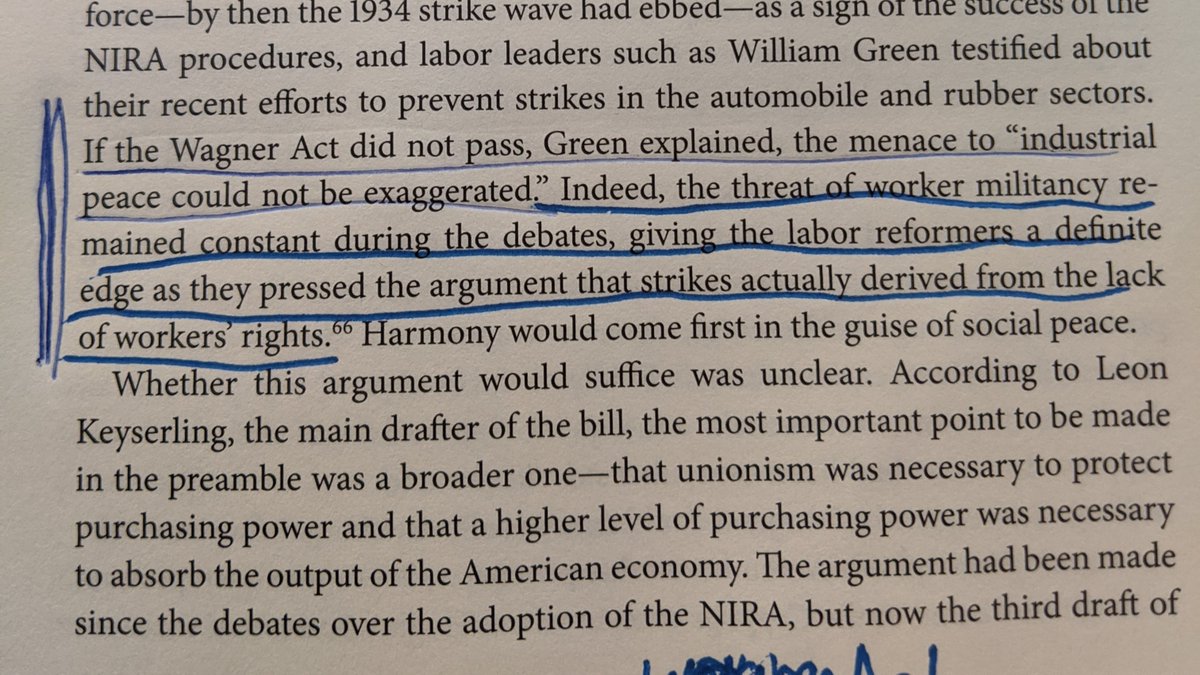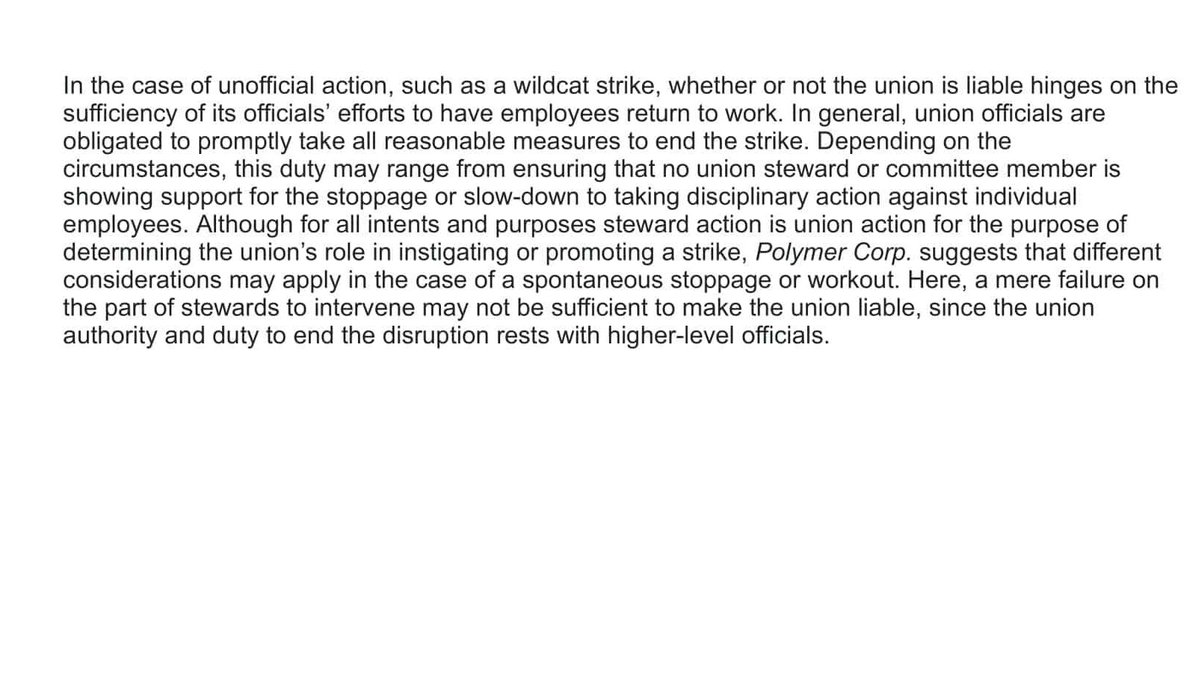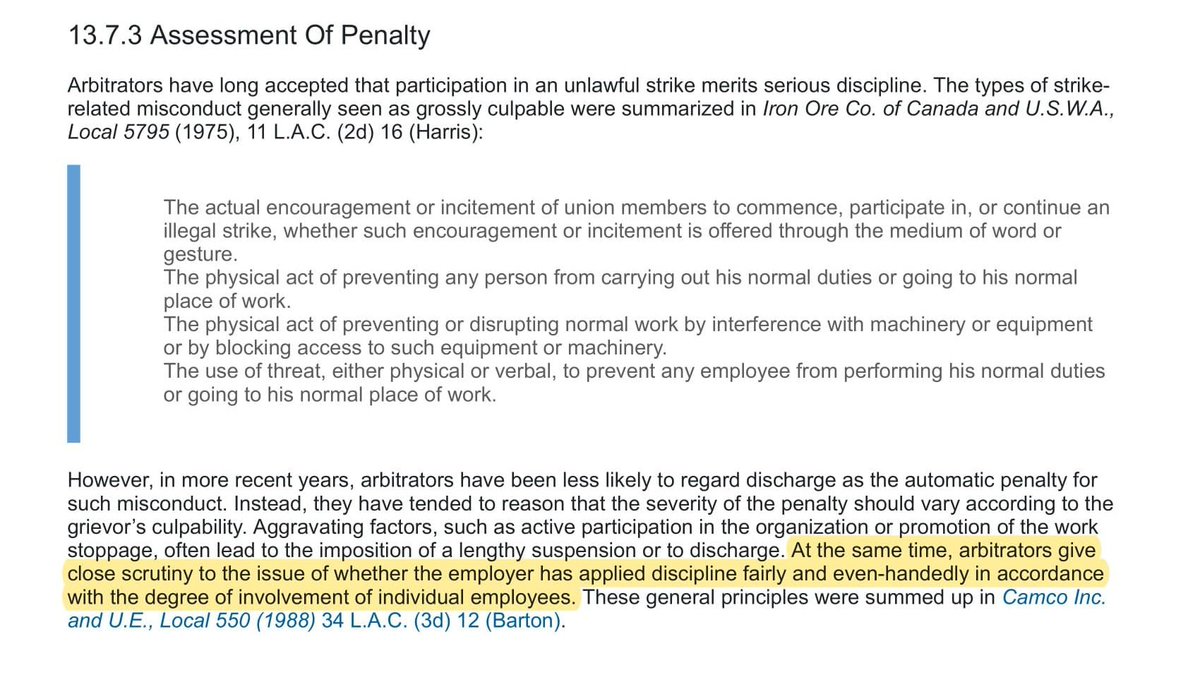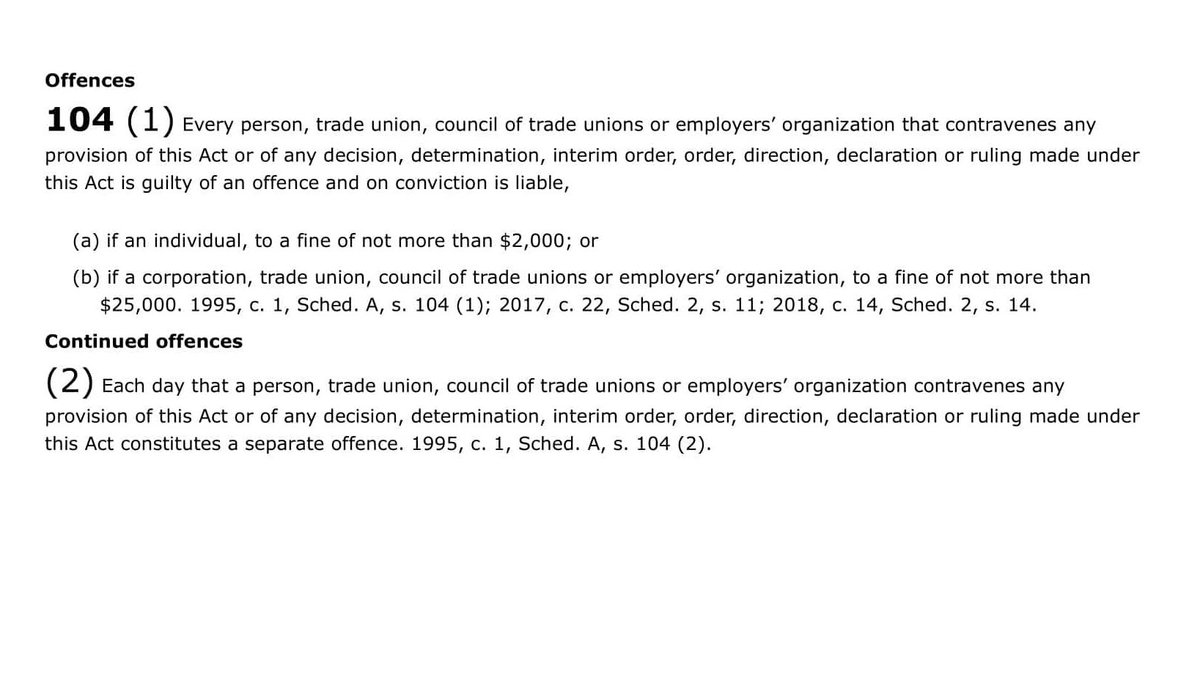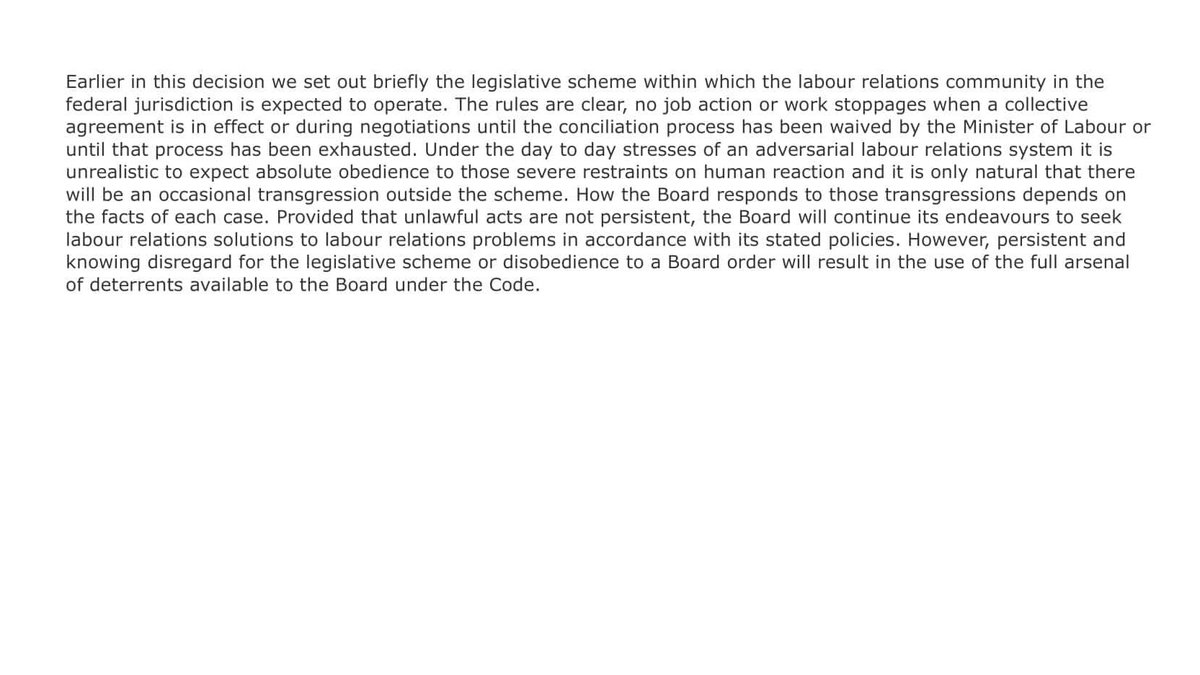Great discussion on wildcat strikes in this episode.
A https://abs.twimg.com/emoji/v2/... draggable="false" alt="🧵" title="Thread" aria-label="Emoji: Thread"> on why labour boards, arbitrators, and legislatures punish wildcats (strikes that take place during the term of an collective agreement) so severely: https://twitter.com/BertaAdvantage/status/1198655446388596736">https://twitter.com/BertaAdva...
https://abs.twimg.com/emoji/v2/... draggable="false" alt="🧵" title="Thread" aria-label="Emoji: Thread"> on why labour boards, arbitrators, and legislatures punish wildcats (strikes that take place during the term of an collective agreement) so severely: https://twitter.com/BertaAdvantage/status/1198655446388596736">https://twitter.com/BertaAdva...
A
1. Wildcats have historically been very effective at securing worker demands when supported by a sufficient degree of solidarity. @BertaAdvantage gives a good example here: https://twitter.com/BertaAdvantage/status/1199107738770391040?s=20">https://twitter.com/BertaAdva...
2. Wildcats are highly effective precisely because they attack what capitalists care about (the capacity to turn a profit) *outside* the state& #39;s regulatory apparatus (where the ownership class has control and influence.)
3. Wildcats undermine the entire reason labour law was enacted by legislatures in the 30s (USA) and 40s (Canadian provinces): To secure "industrial peace" by regulating and curtailing militant strike action.
The reason workers have statutory rights that force employers to:
recognize unions
bargain in good faith
collect dues off payroll
is precisely because legislatures hoped that if unions were provided with such rights they would no longer resort to strikes to settle disputes.
recognize unions
bargain in good faith
collect dues off payroll
is precisely because legislatures hoped that if unions were provided with such rights they would no longer resort to strikes to settle disputes.
So how does the labour relation regime punish wildcats? It varies depending on province but generally:
A. Union liability for economic harm and lost profit;
B. Discipline of the striking workers;
C. Possible union/worker prosecutions & fines under the Labour Code/Act.
A. Union liability for economic harm and lost profit;
B. Discipline of the striking workers;
C. Possible union/worker prosecutions & fines under the Labour Code/Act.
A. An union& #39;s liability for economic harm depends on the role of union officials in organizing the wildcat.
The jurisprudence places a *positive* obligation on union officials to take steps to end unlawful strikes.
This is why wildcats often spring from the rank and file.
The jurisprudence places a *positive* obligation on union officials to take steps to end unlawful strikes.
This is why wildcats often spring from the rank and file.
B: Discipline of the strikers can vary from suspension to discharge depending on the individual striker& #39;s role in the wildcat.
Crucially however employers cannot single out a striker for discharge without evidence of individual culpability. Discipline must be even-handed.
Crucially however employers cannot single out a striker for discharge without evidence of individual culpability. Discipline must be even-handed.
C: While a labour board consenting to prosecution is relatively rare it can result in heavy fines.
For example In Ontario individual strikers can be fined up to $2000 *a day* if a wildcat continues after the Board has directed the strikers to return to work under S. 100.
For example In Ontario individual strikers can be fined up to $2000 *a day* if a wildcat continues after the Board has directed the strikers to return to work under S. 100.
Labour Boards generally will be reluctant to consent to prosecution of unlawful strike activity unless there is "persistent and knowing disregard for the legislative scheme or disobedience to a Board order."
See St. John& #39;s Shipping Assn v. Kennedy, 1985 CLRB:
See St. John& #39;s Shipping Assn v. Kennedy, 1985 CLRB:
I took a cursory look but I could not find any cases where rank and file strikers were individually prosecuted and levied with fines for wildcats.
But then again I am researching this at home, on parental leave, while the baby naps, so a longer look may be warranted.
But then again I am researching this at home, on parental leave, while the baby naps, so a longer look may be warranted.
As always this  https://abs.twimg.com/emoji/v2/... draggable="false" alt="🧵" title="Thread" aria-label="Emoji: Thread">is intended as general legal information. If anyone is looking for legal advice regarding the risks associated with wildcats in their province they should get an opinion from their local friendly neighbourhood labour lawyer.
https://abs.twimg.com/emoji/v2/... draggable="false" alt="🧵" title="Thread" aria-label="Emoji: Thread">is intended as general legal information. If anyone is looking for legal advice regarding the risks associated with wildcats in their province they should get an opinion from their local friendly neighbourhood labour lawyer.

 Read on Twitter
Read on Twitter